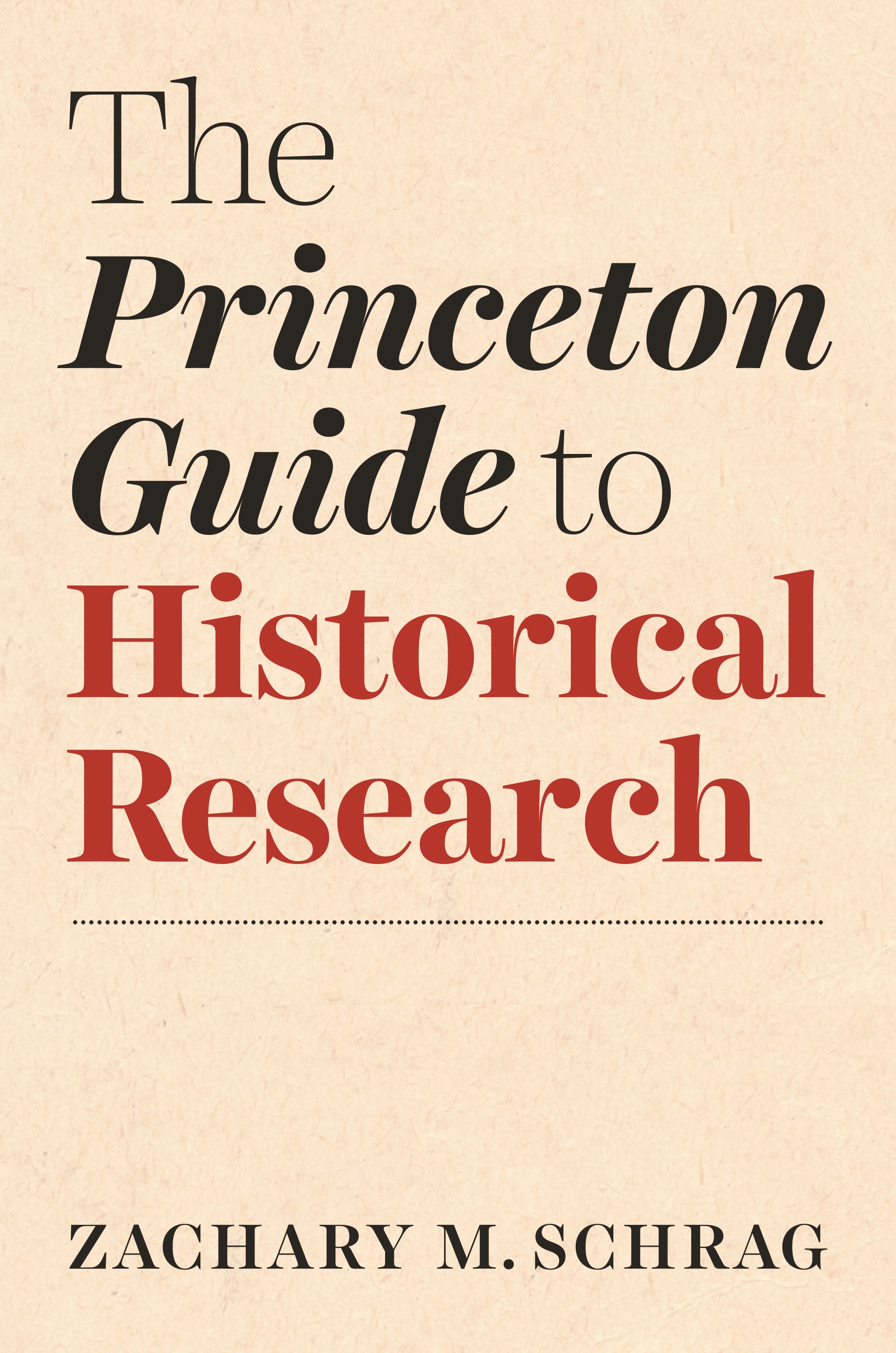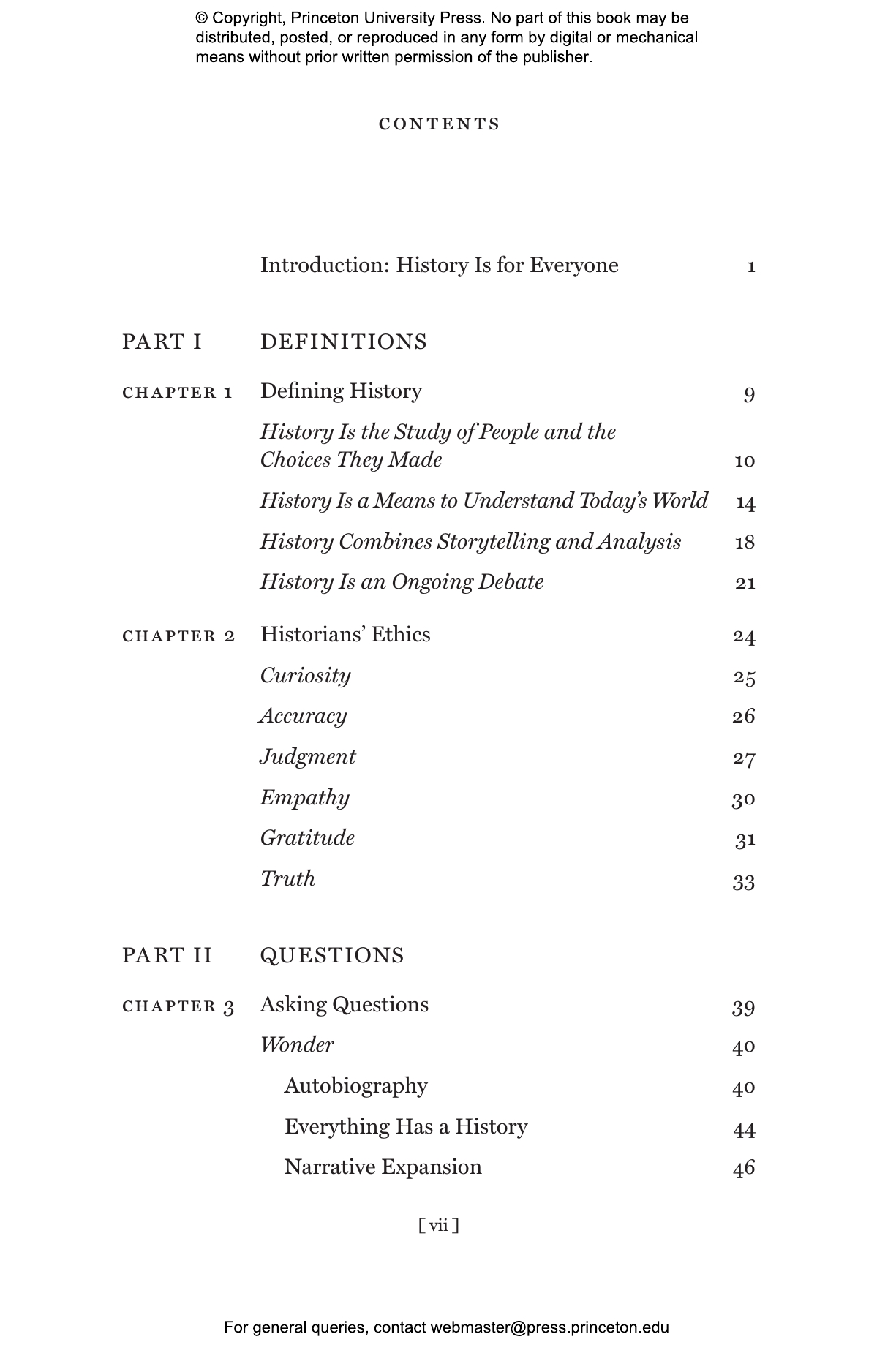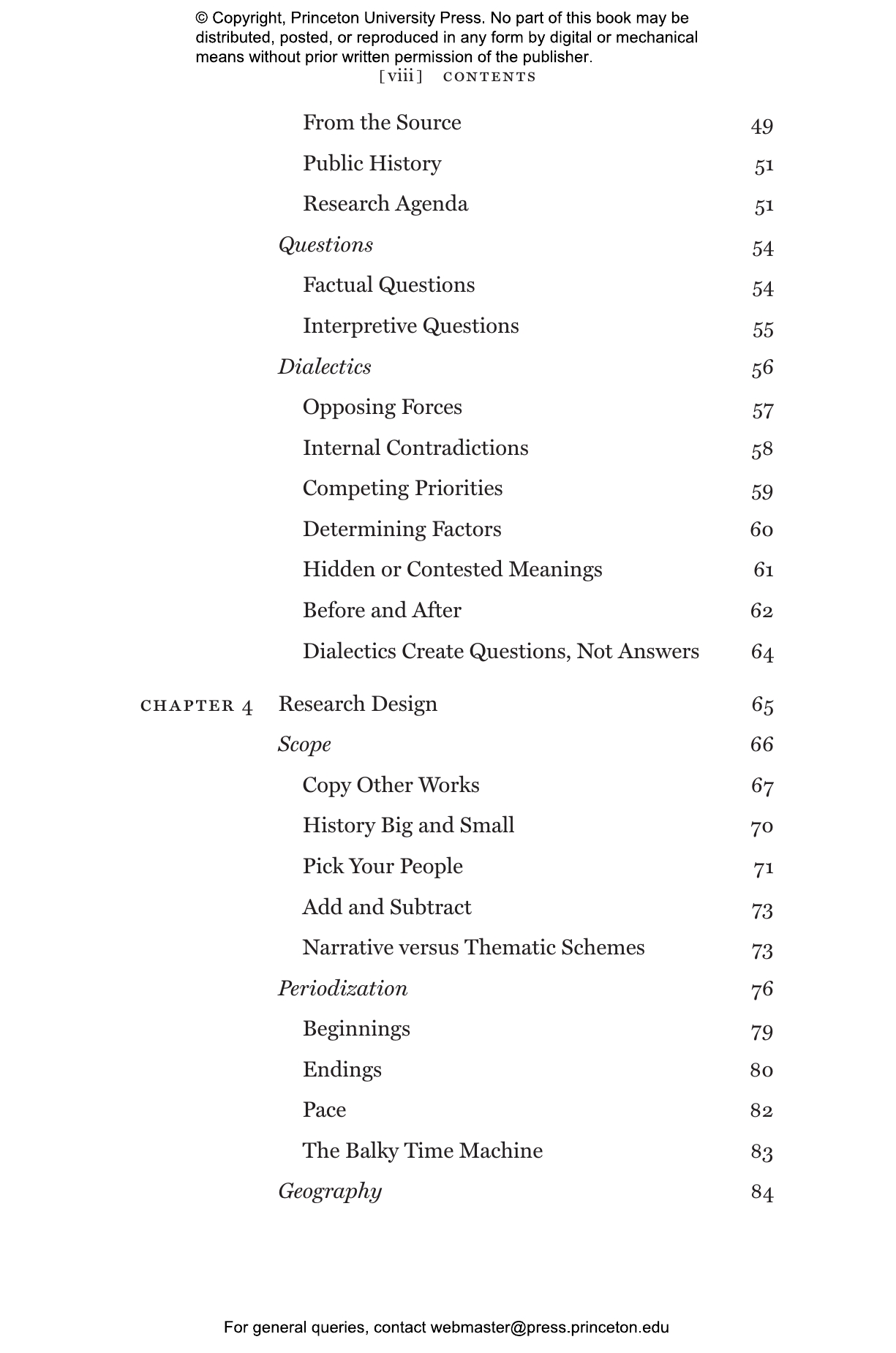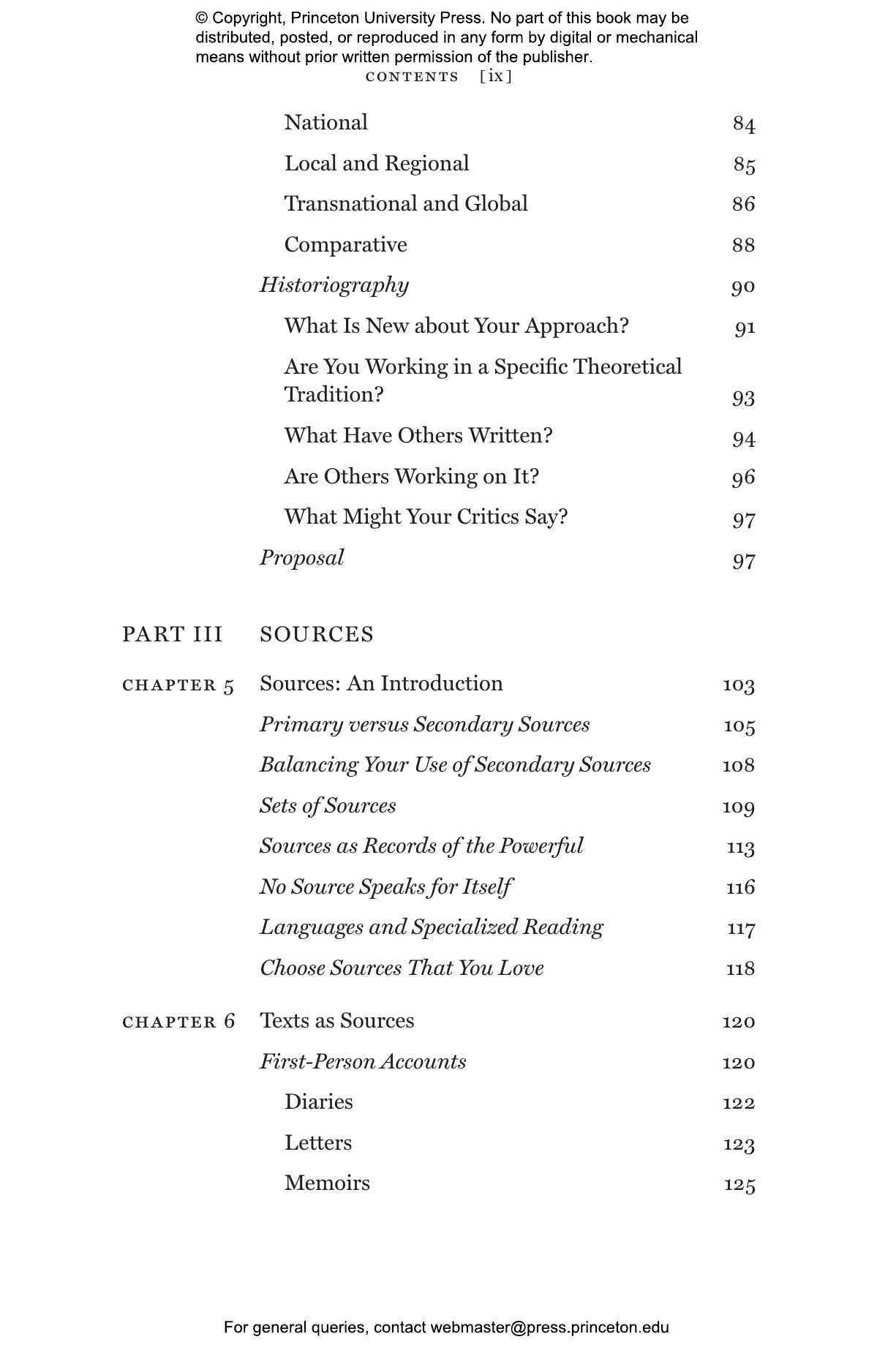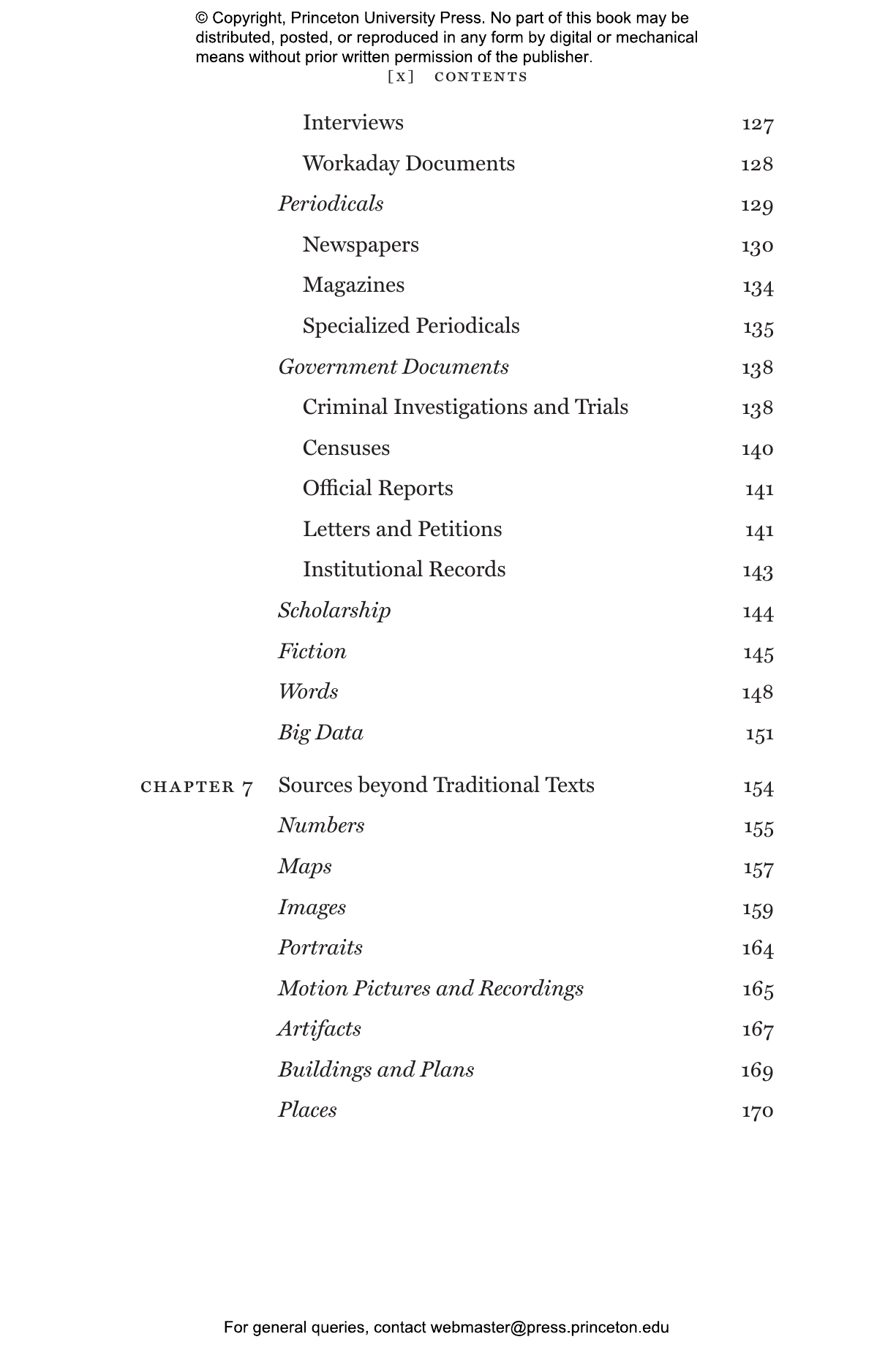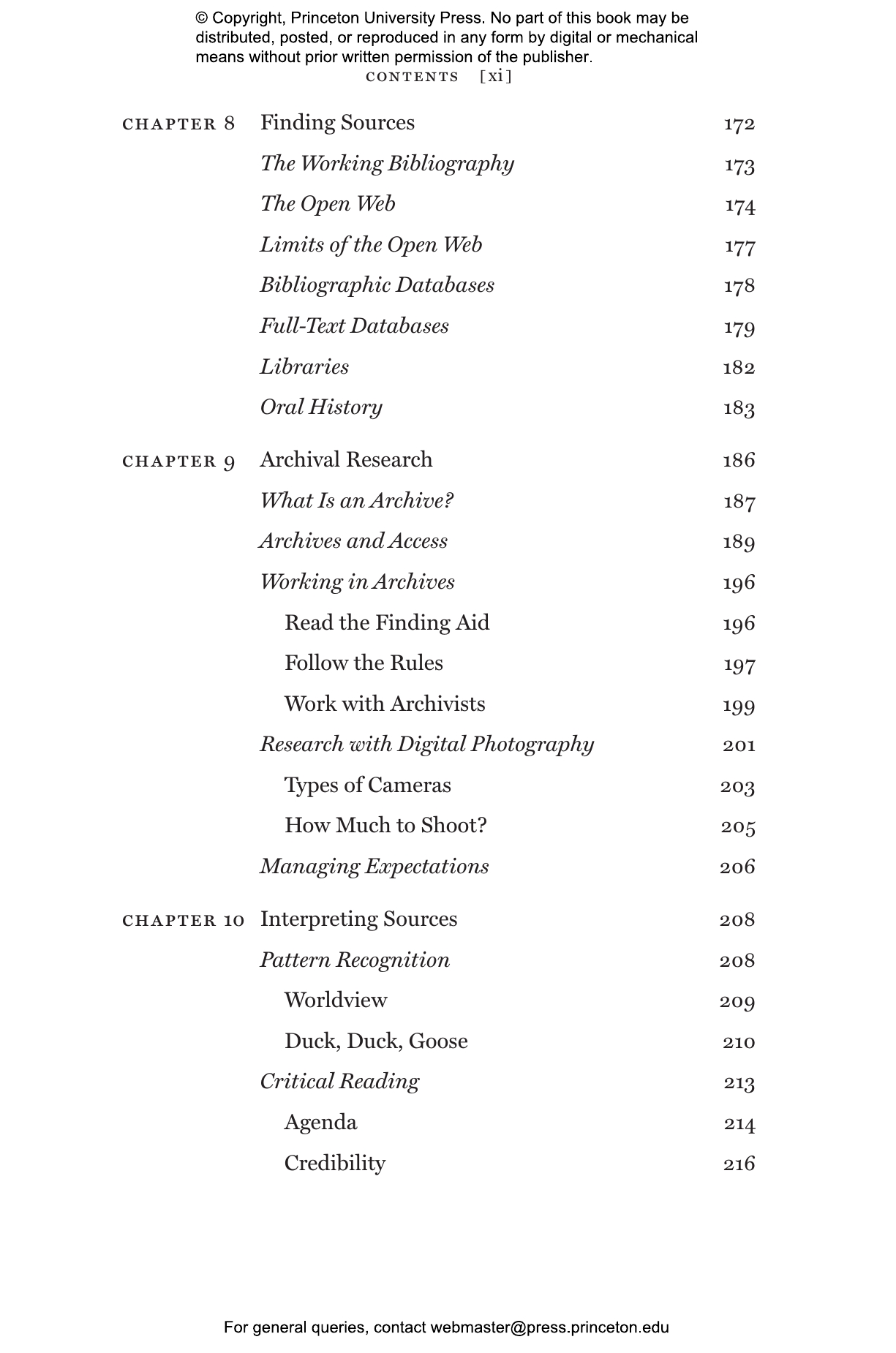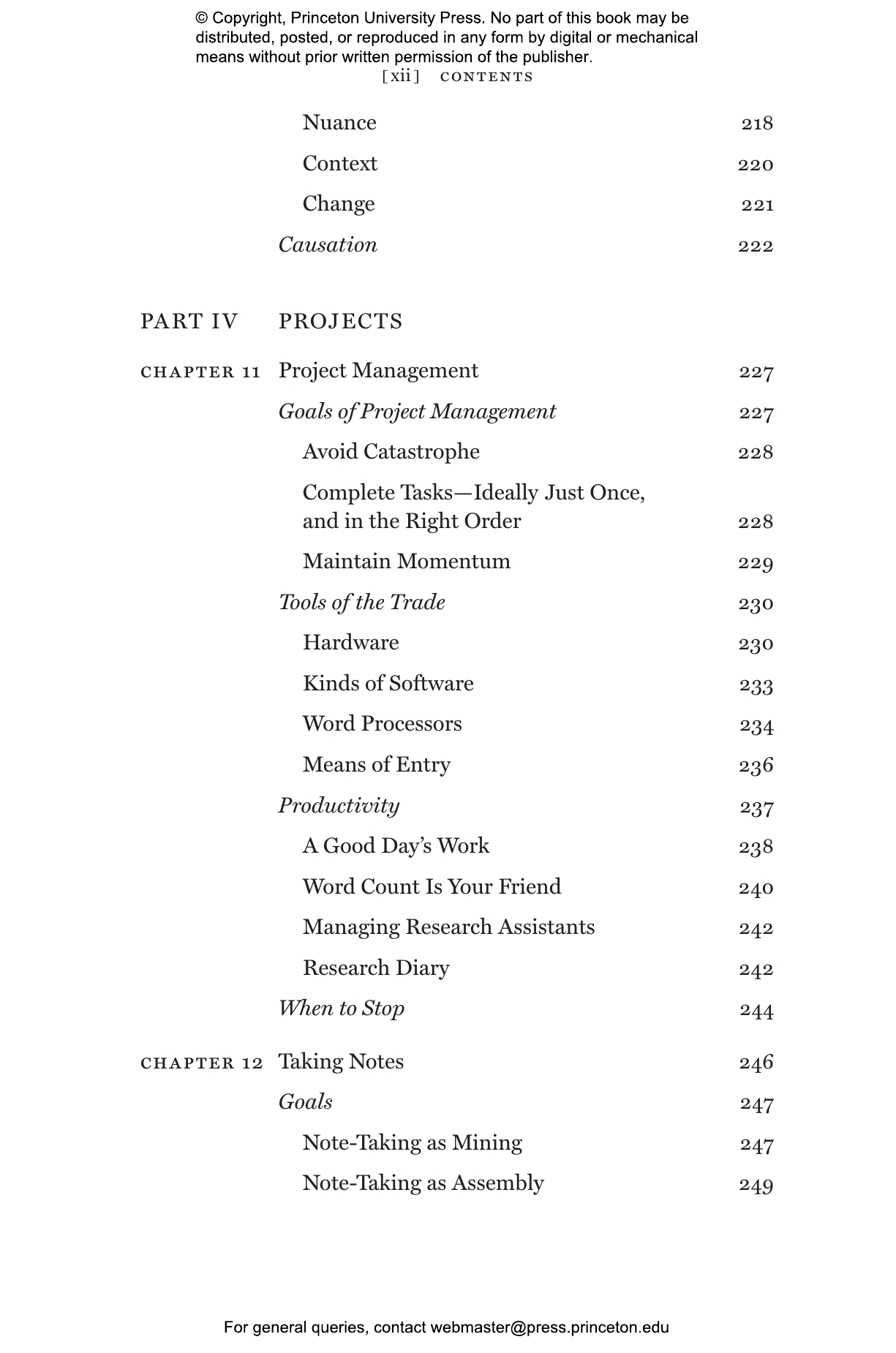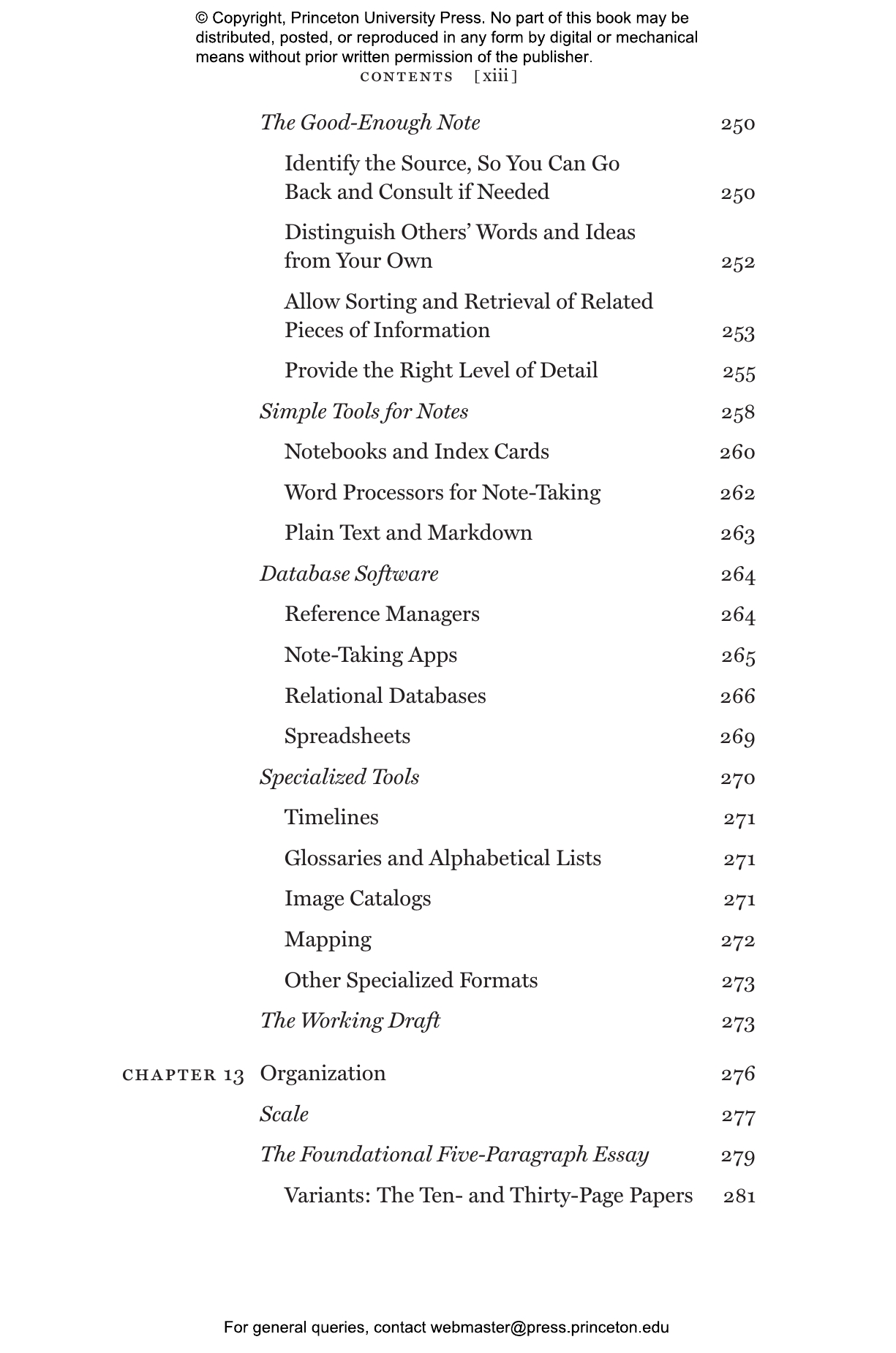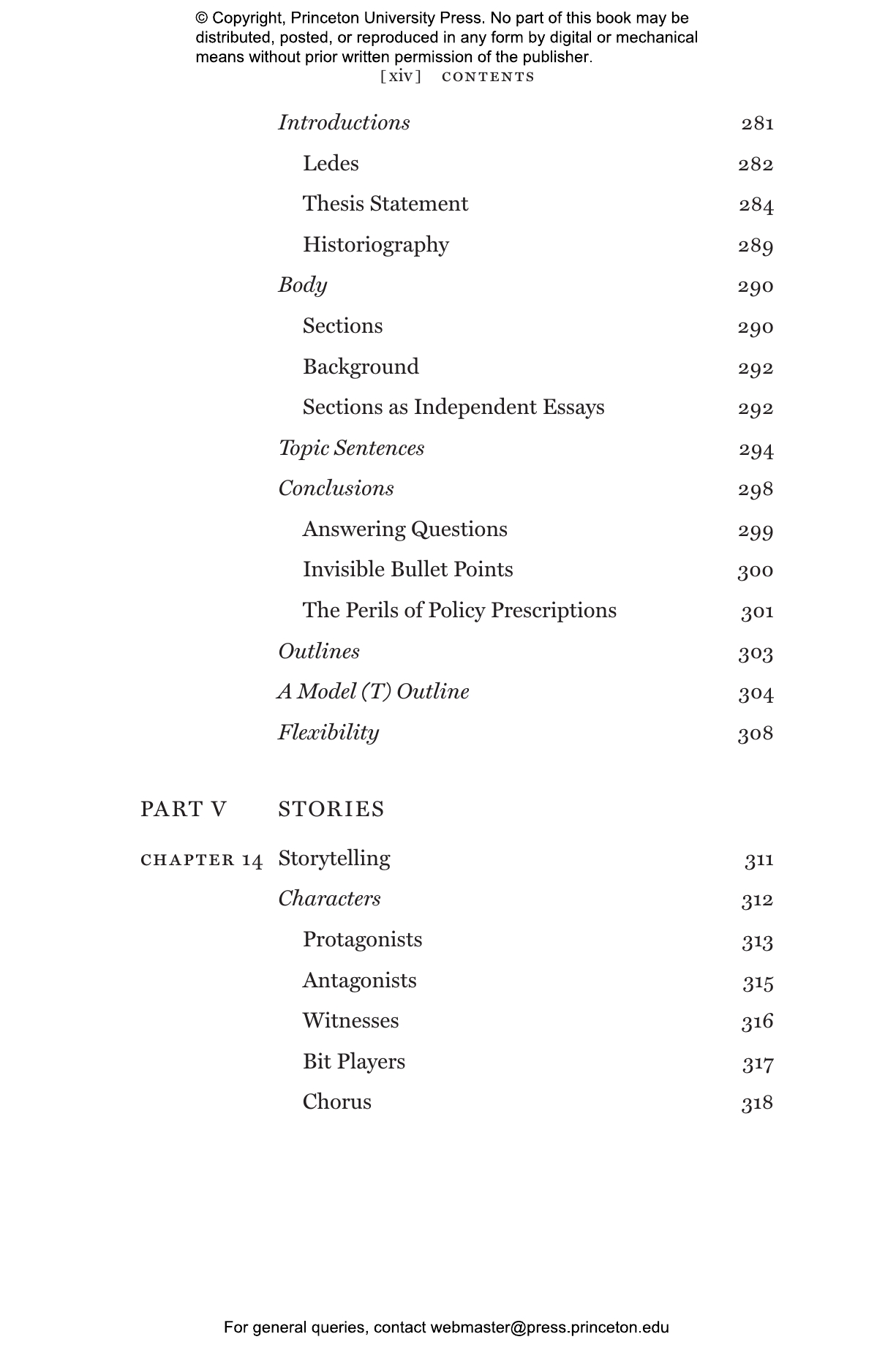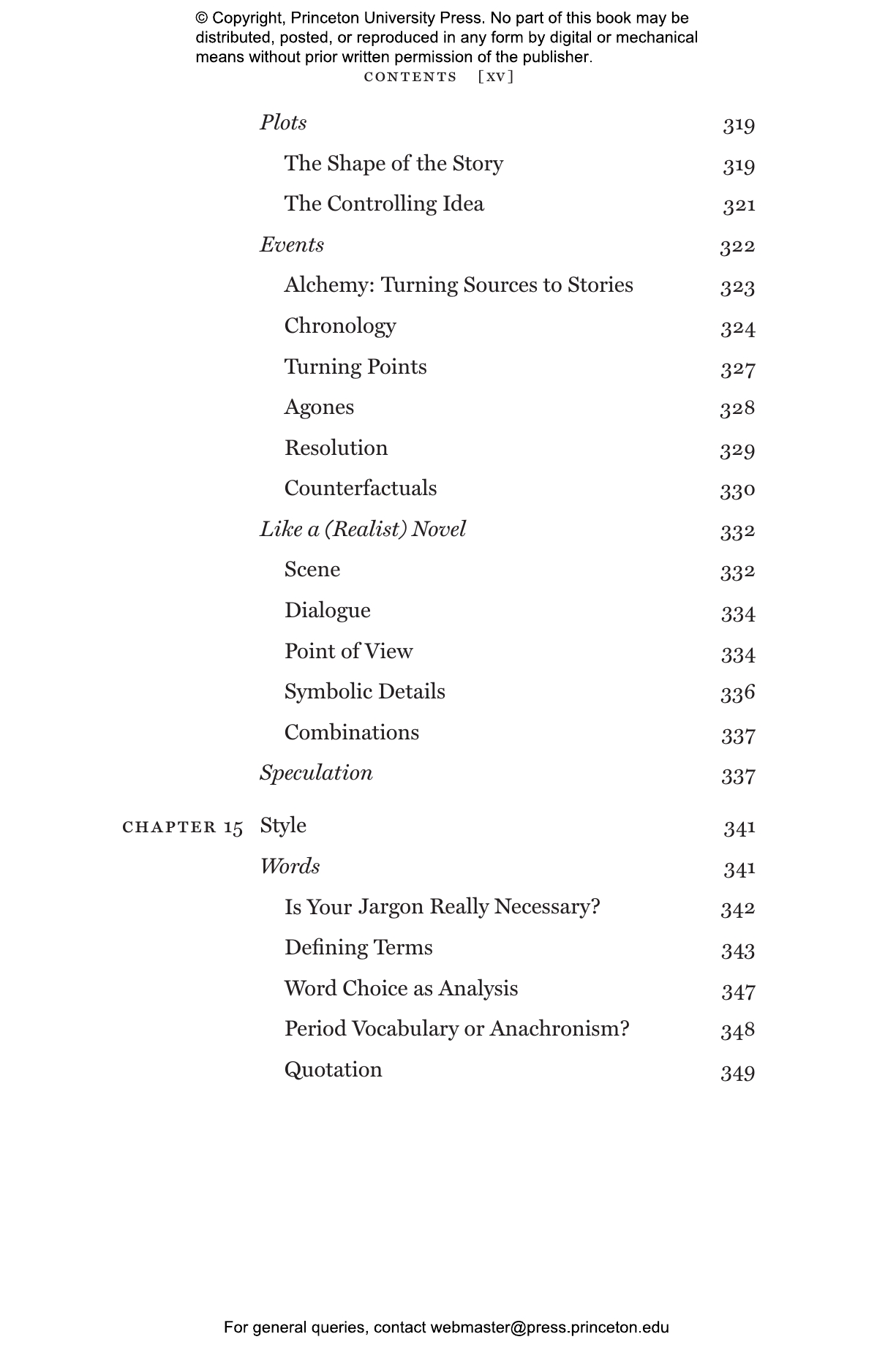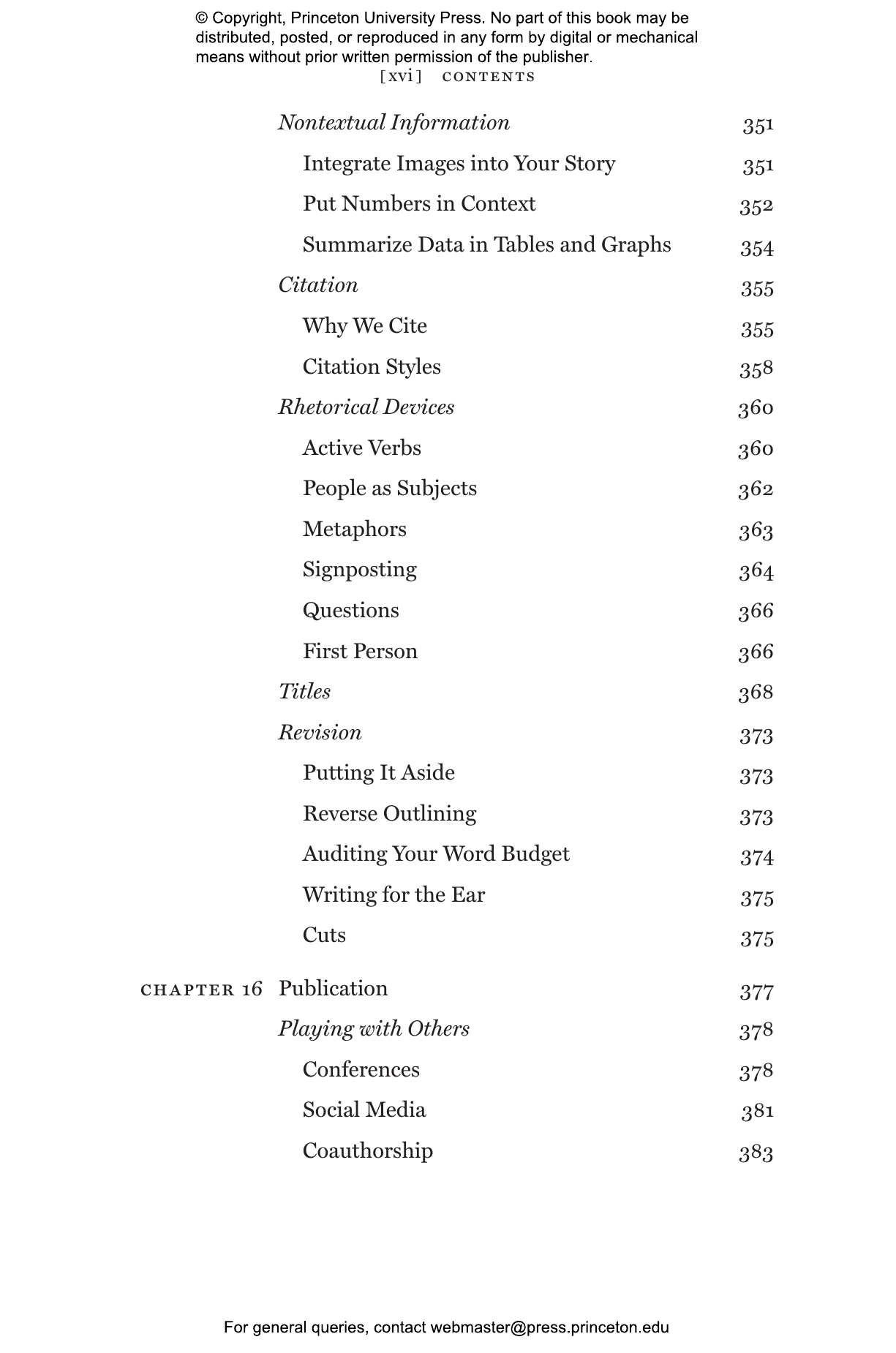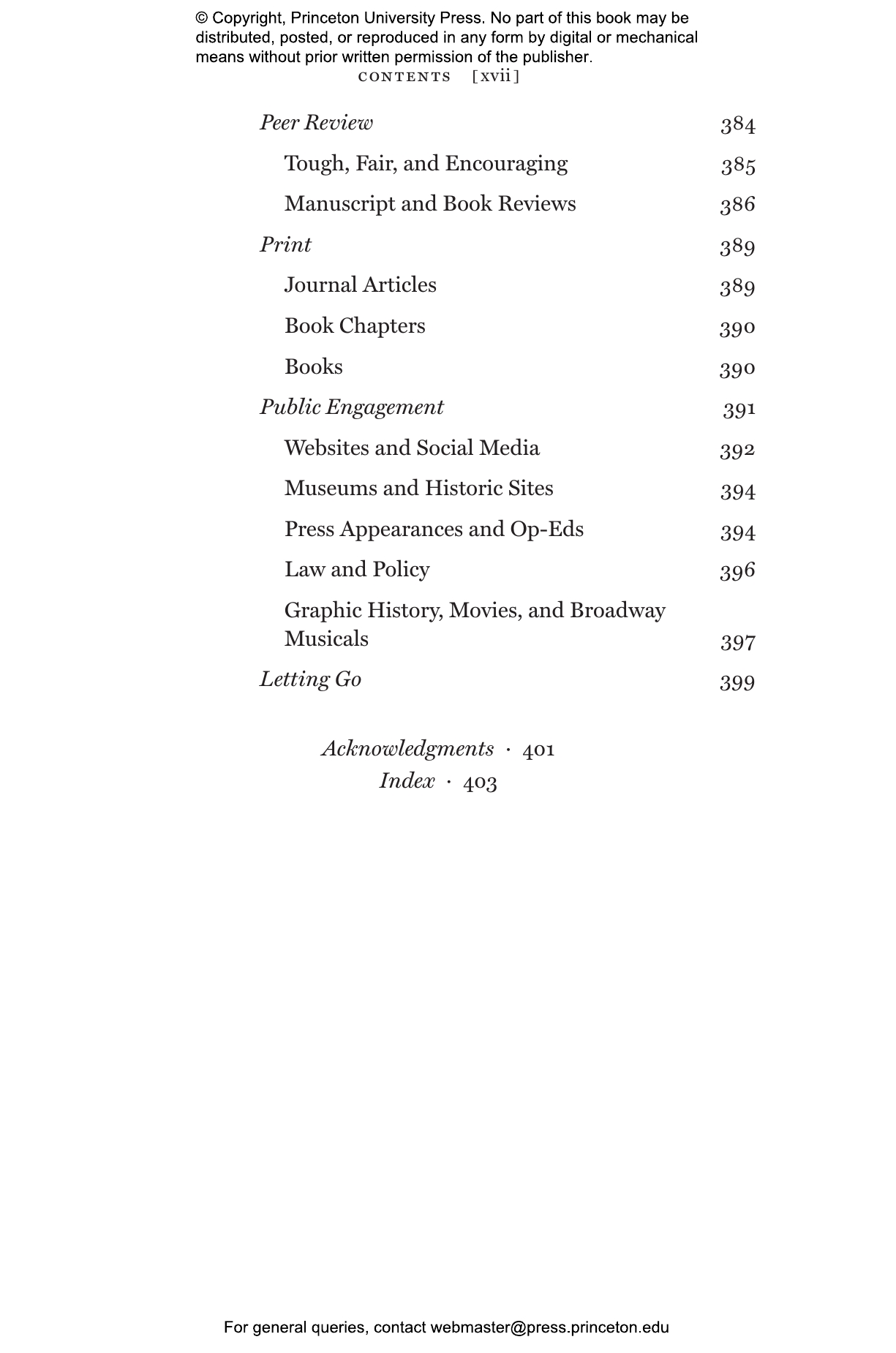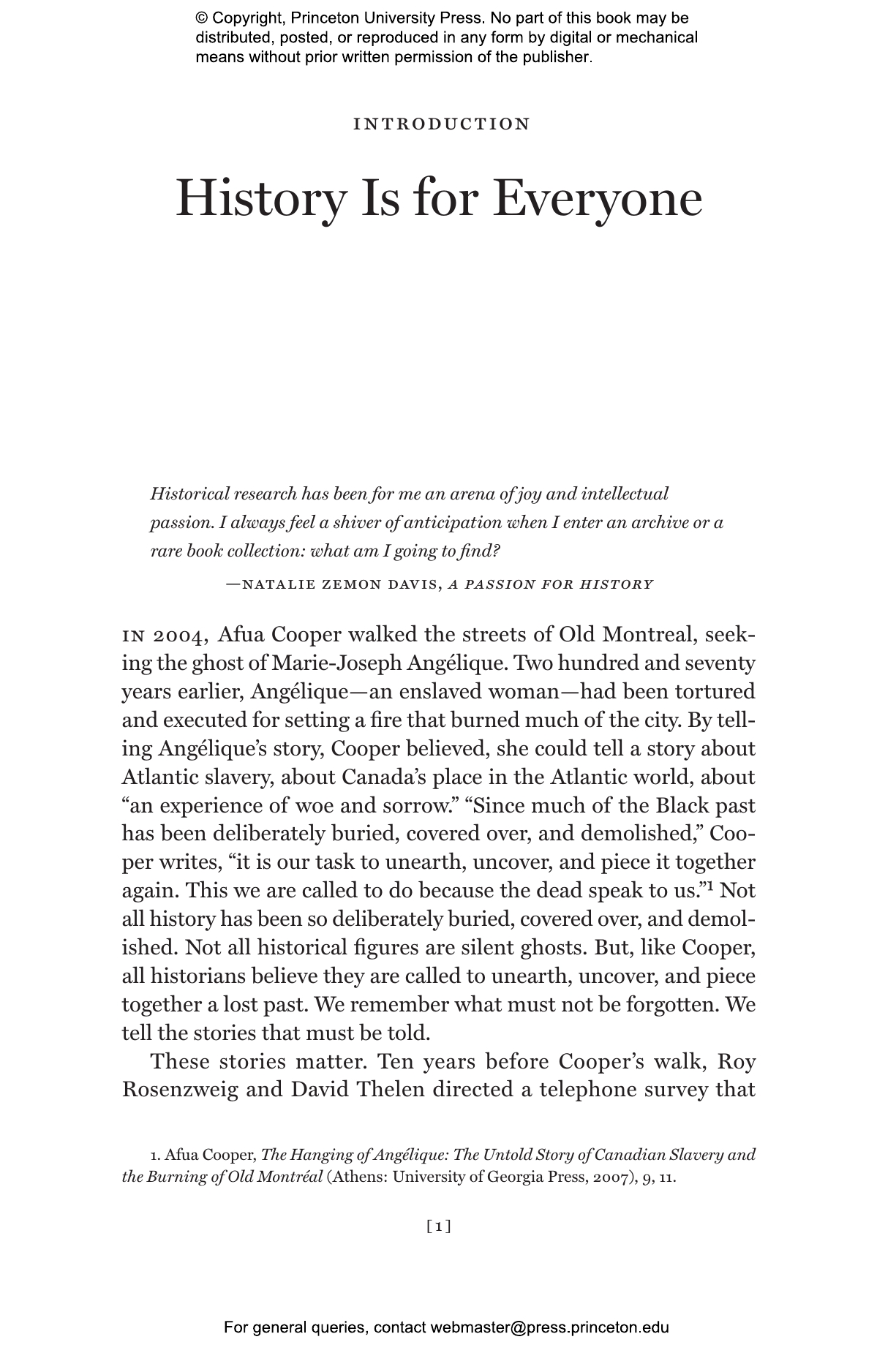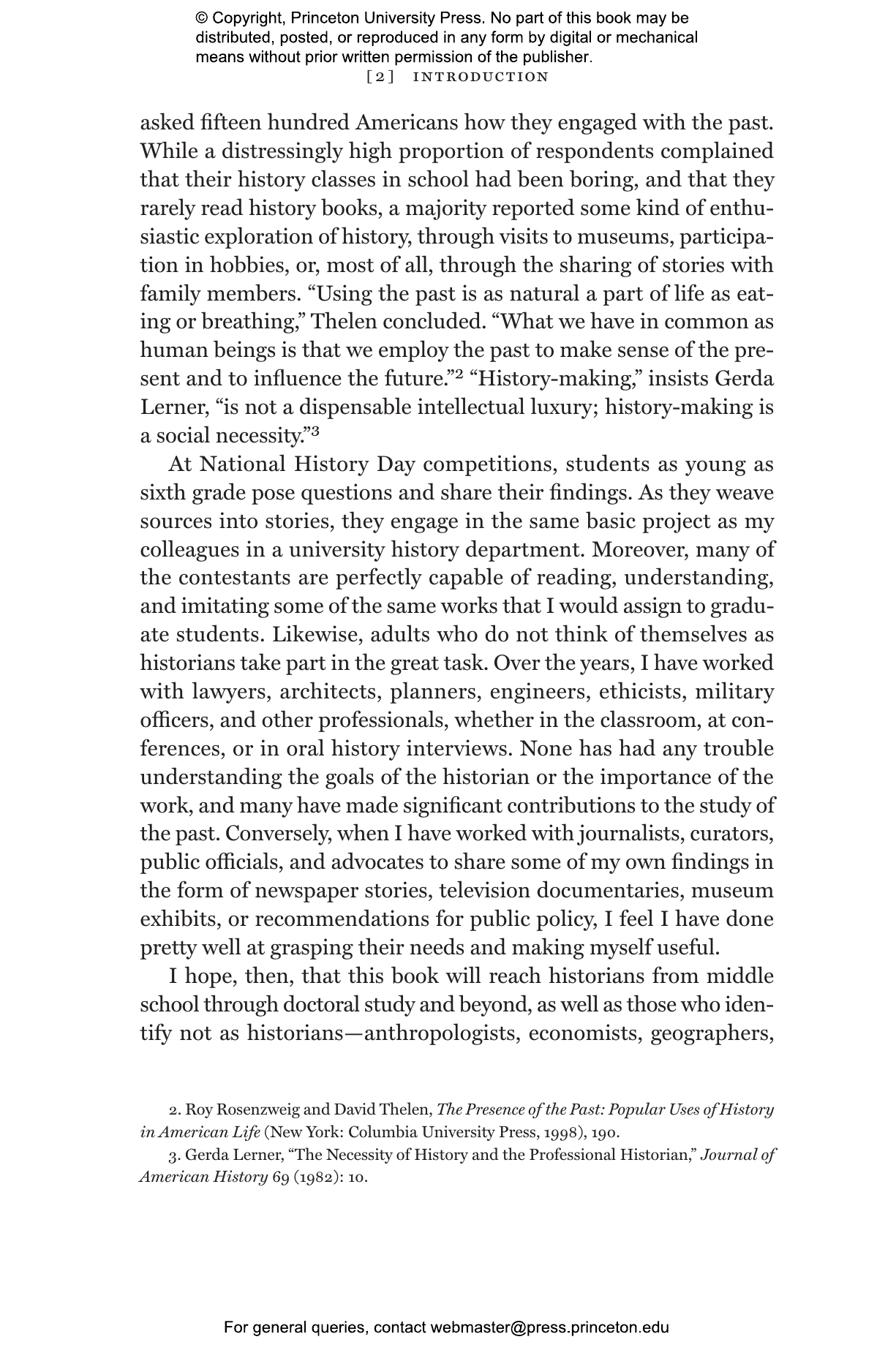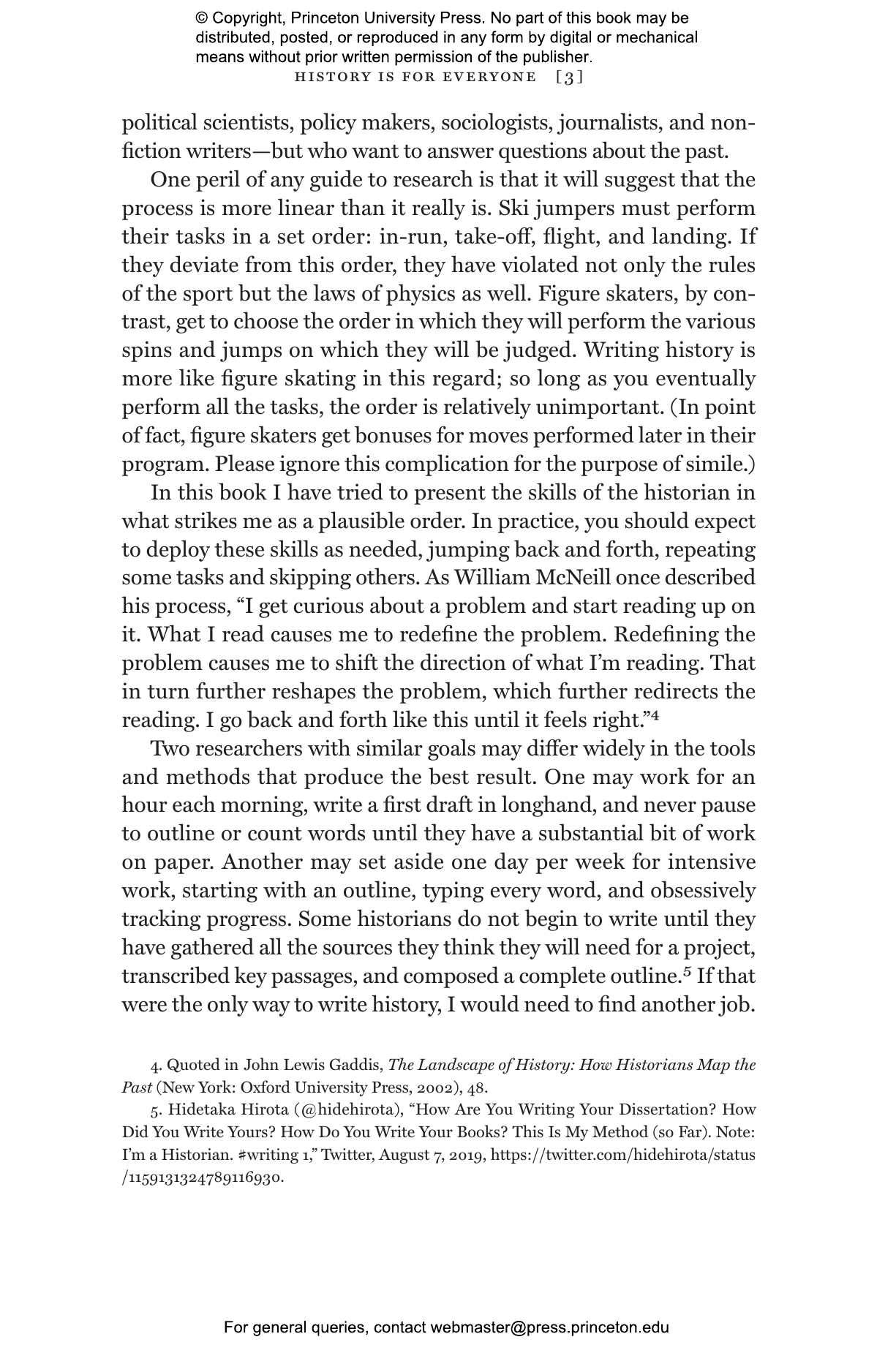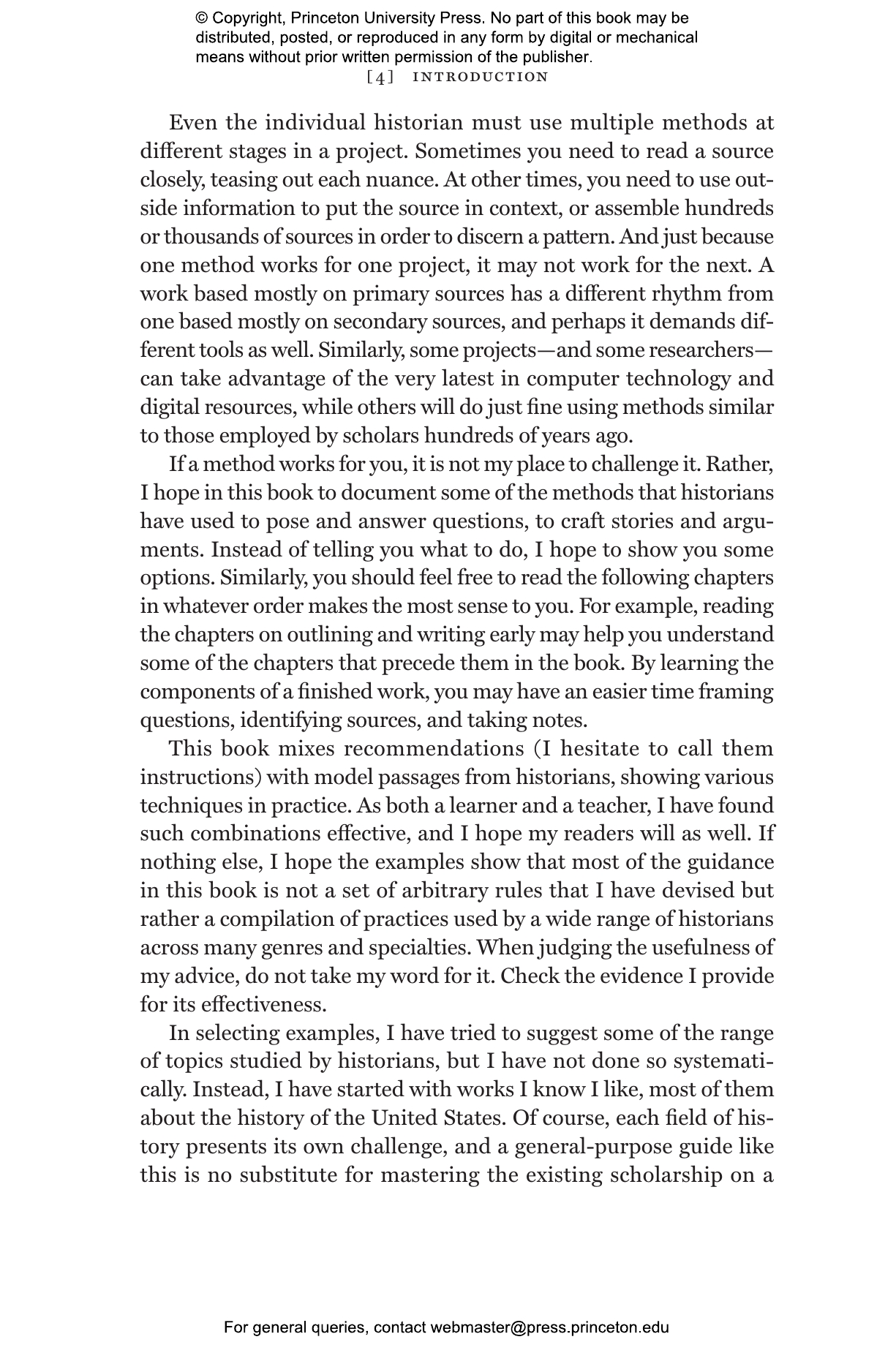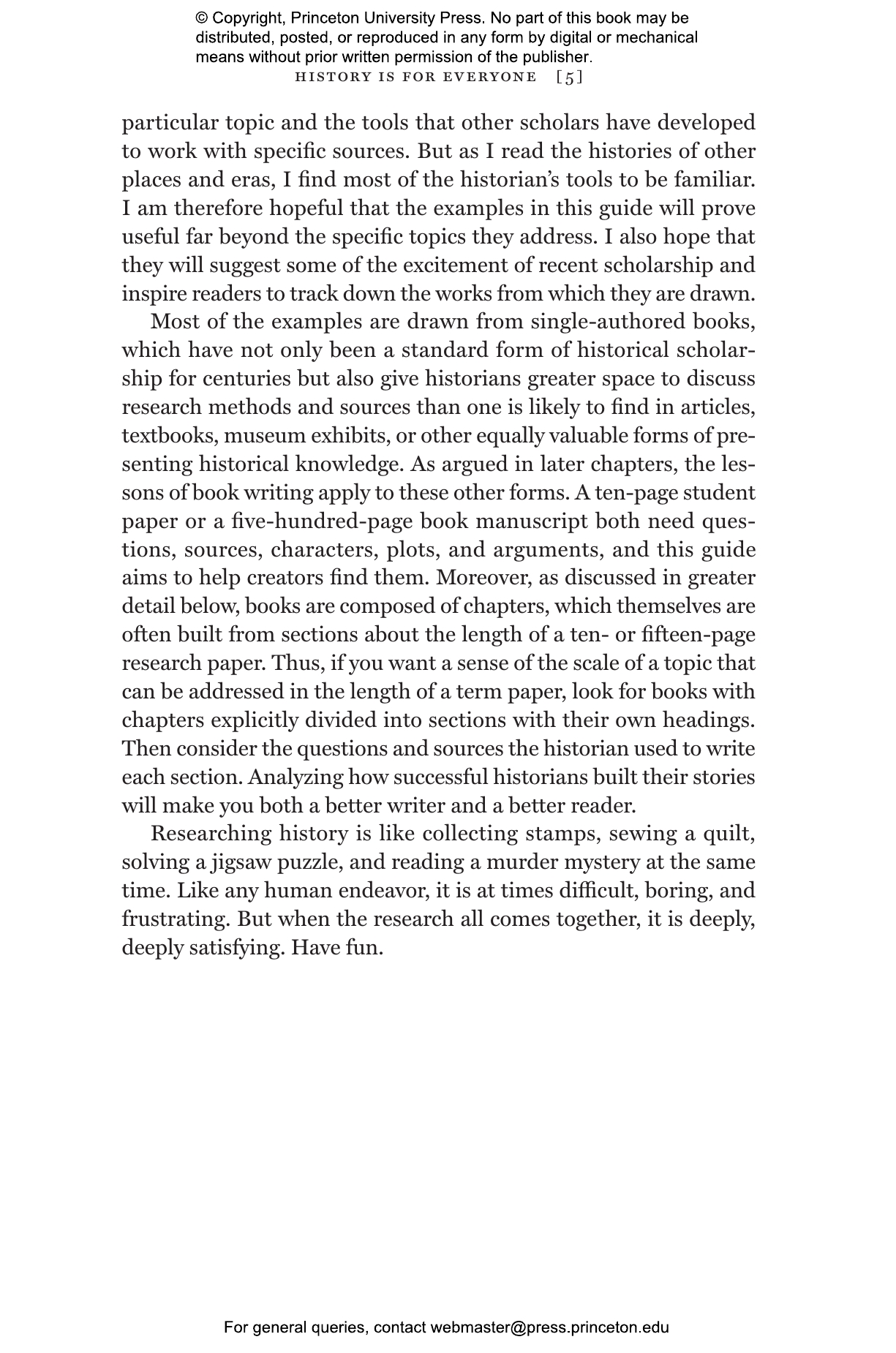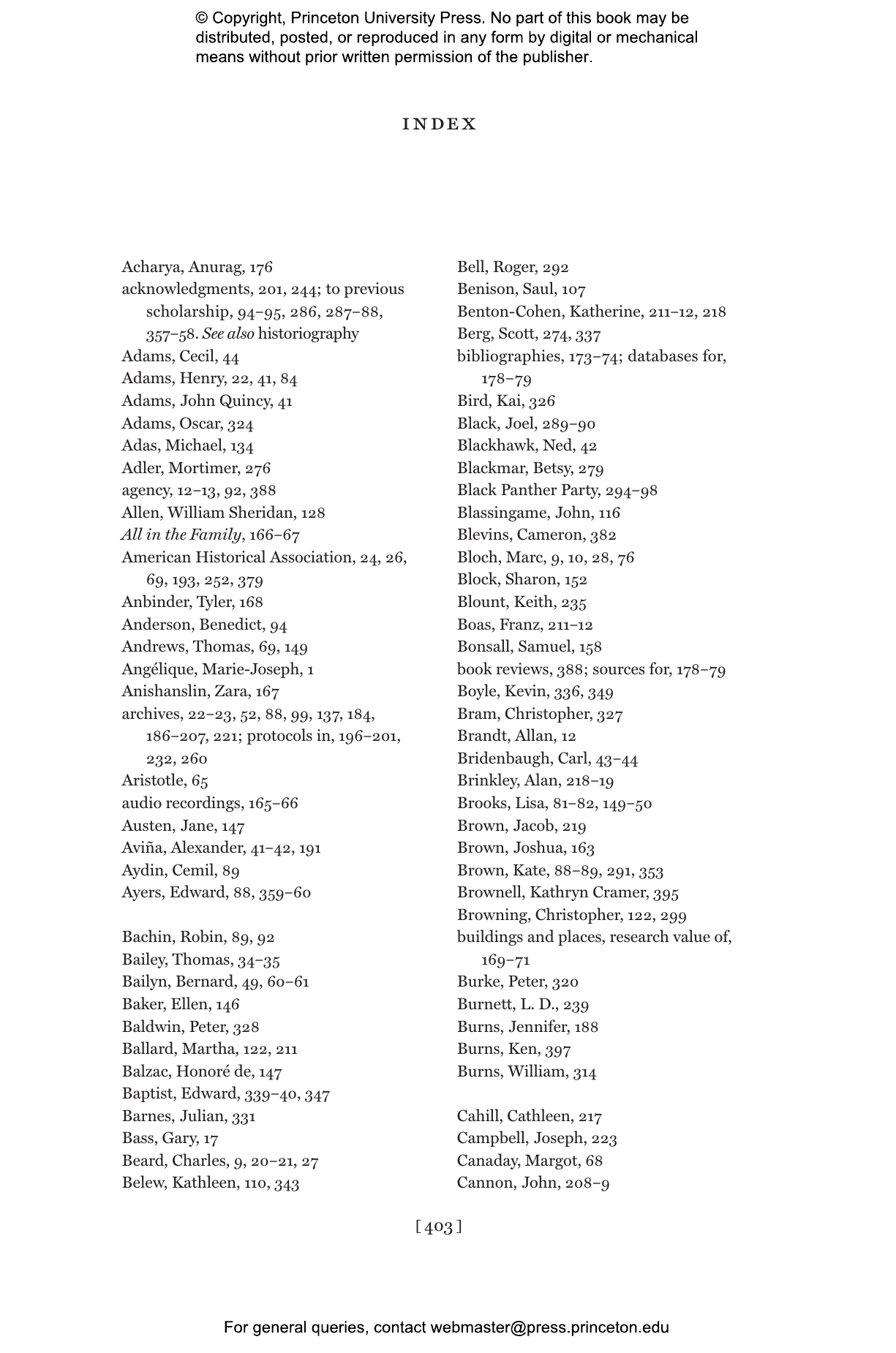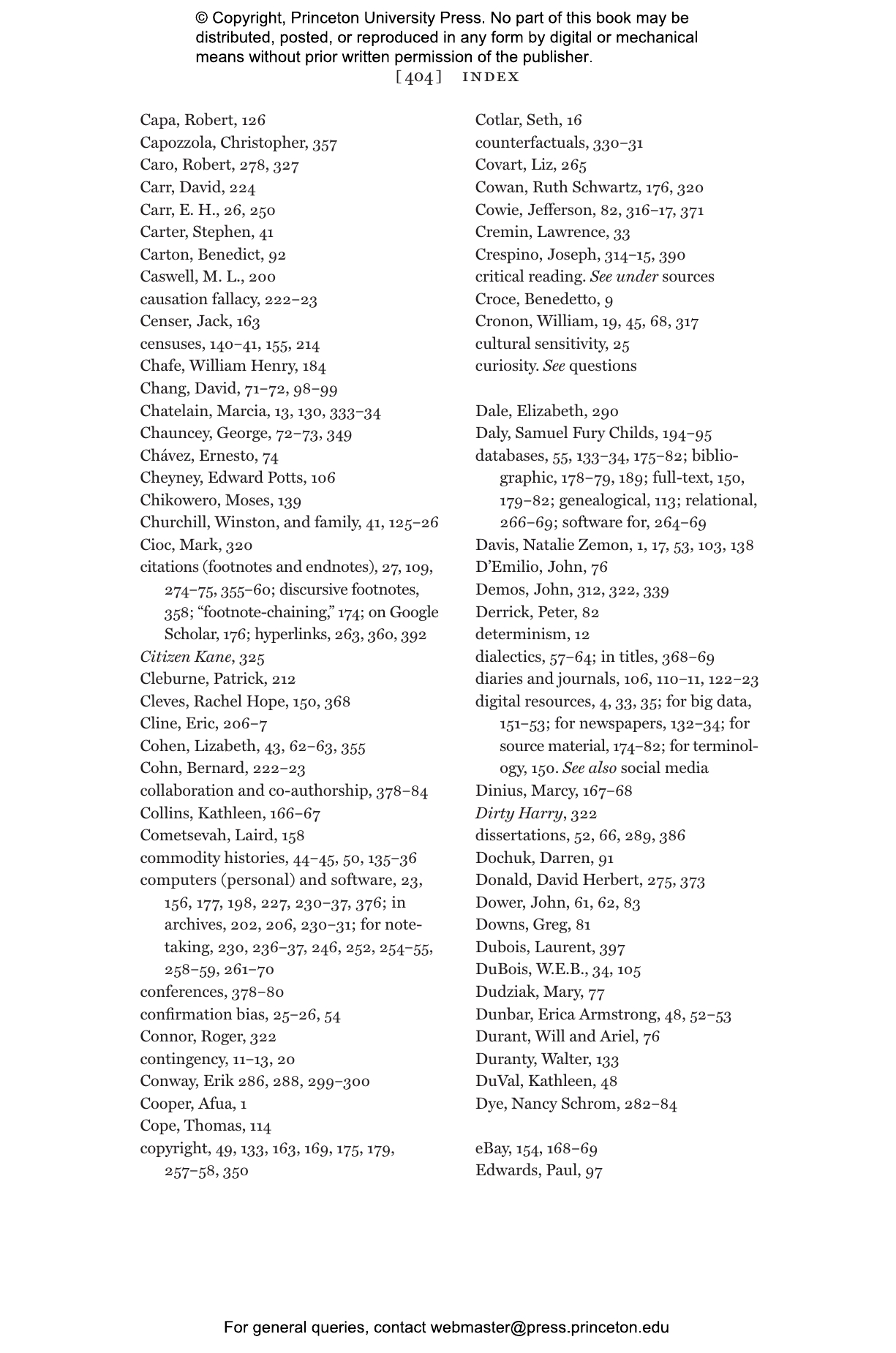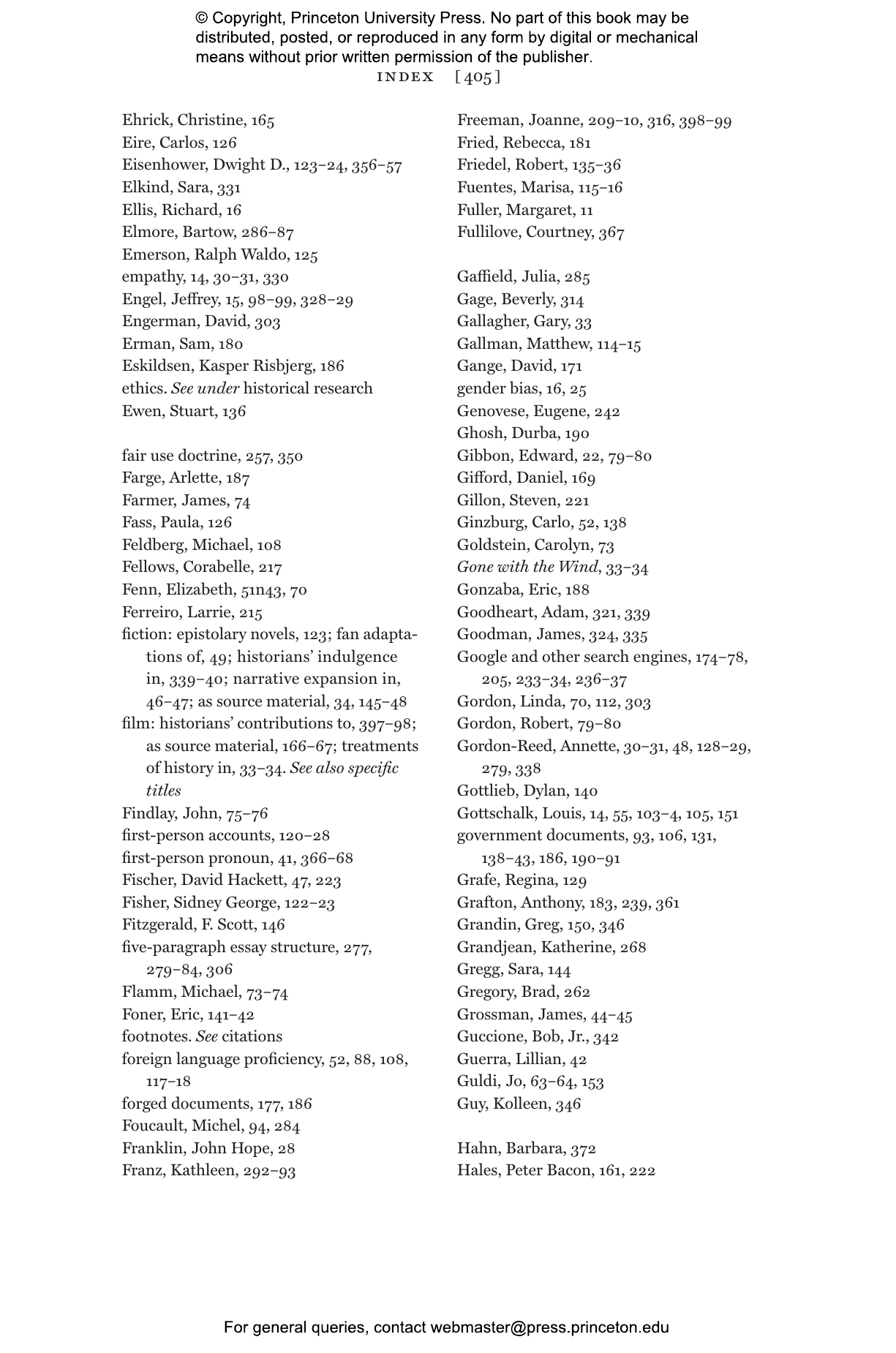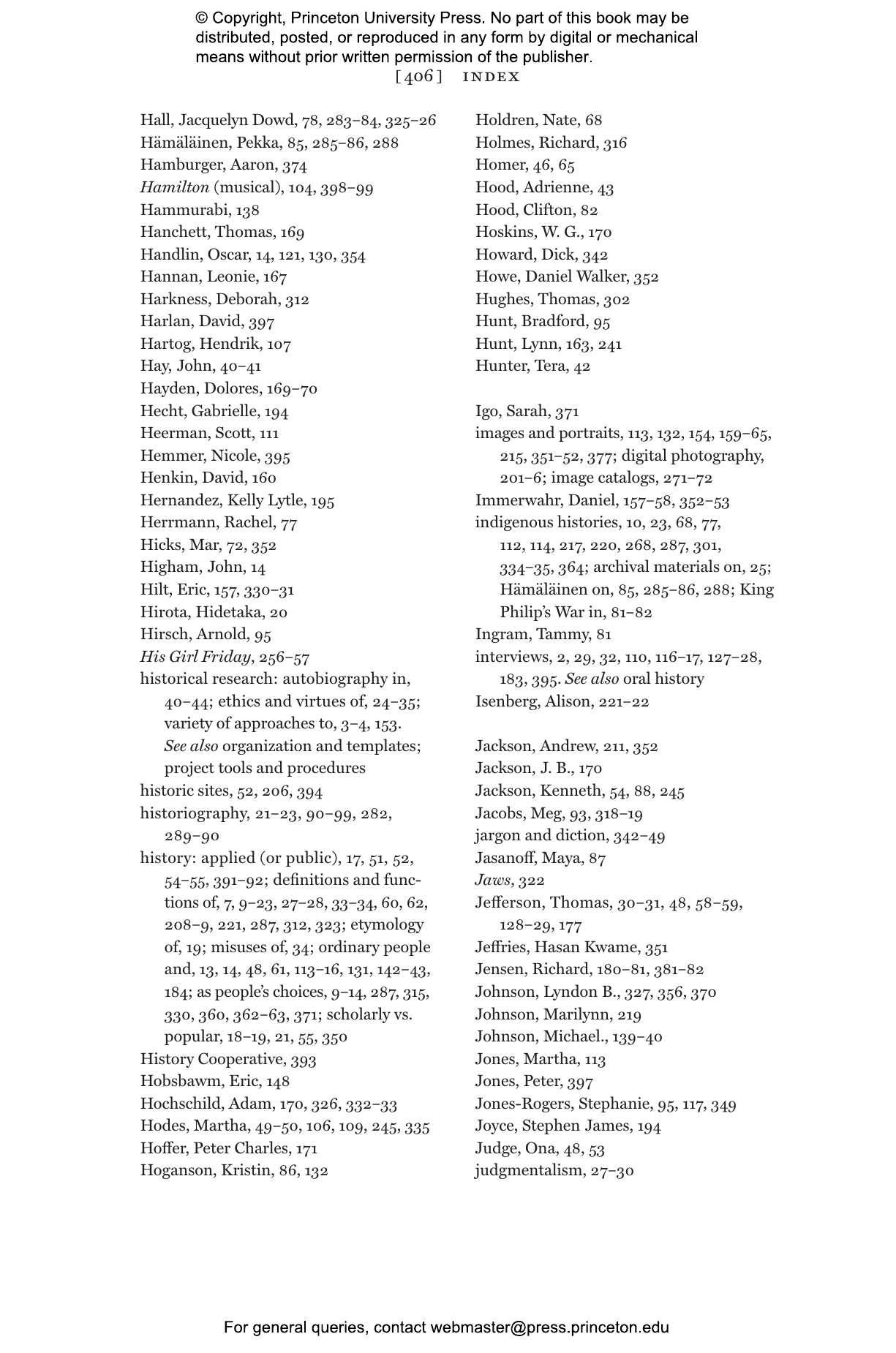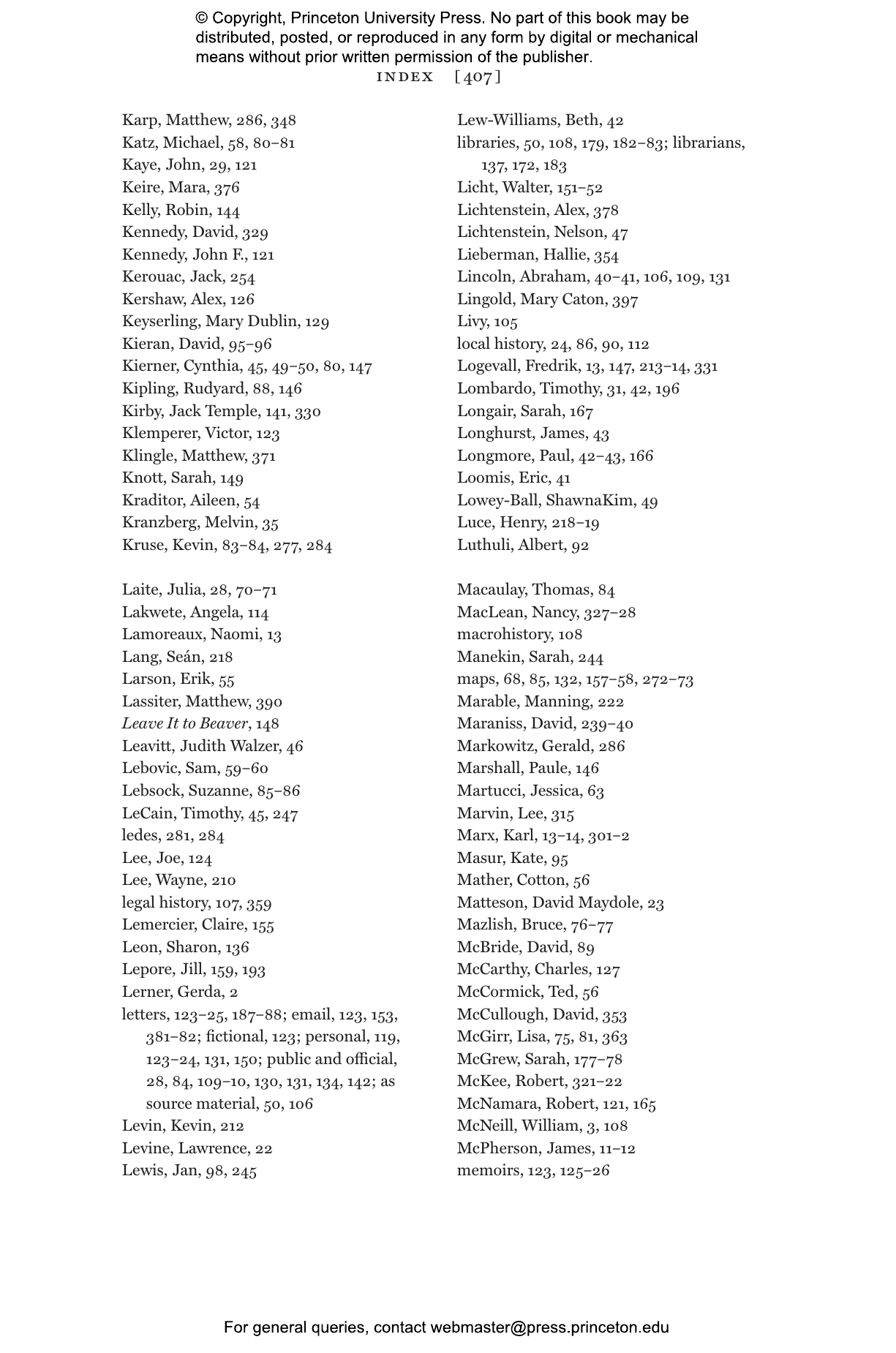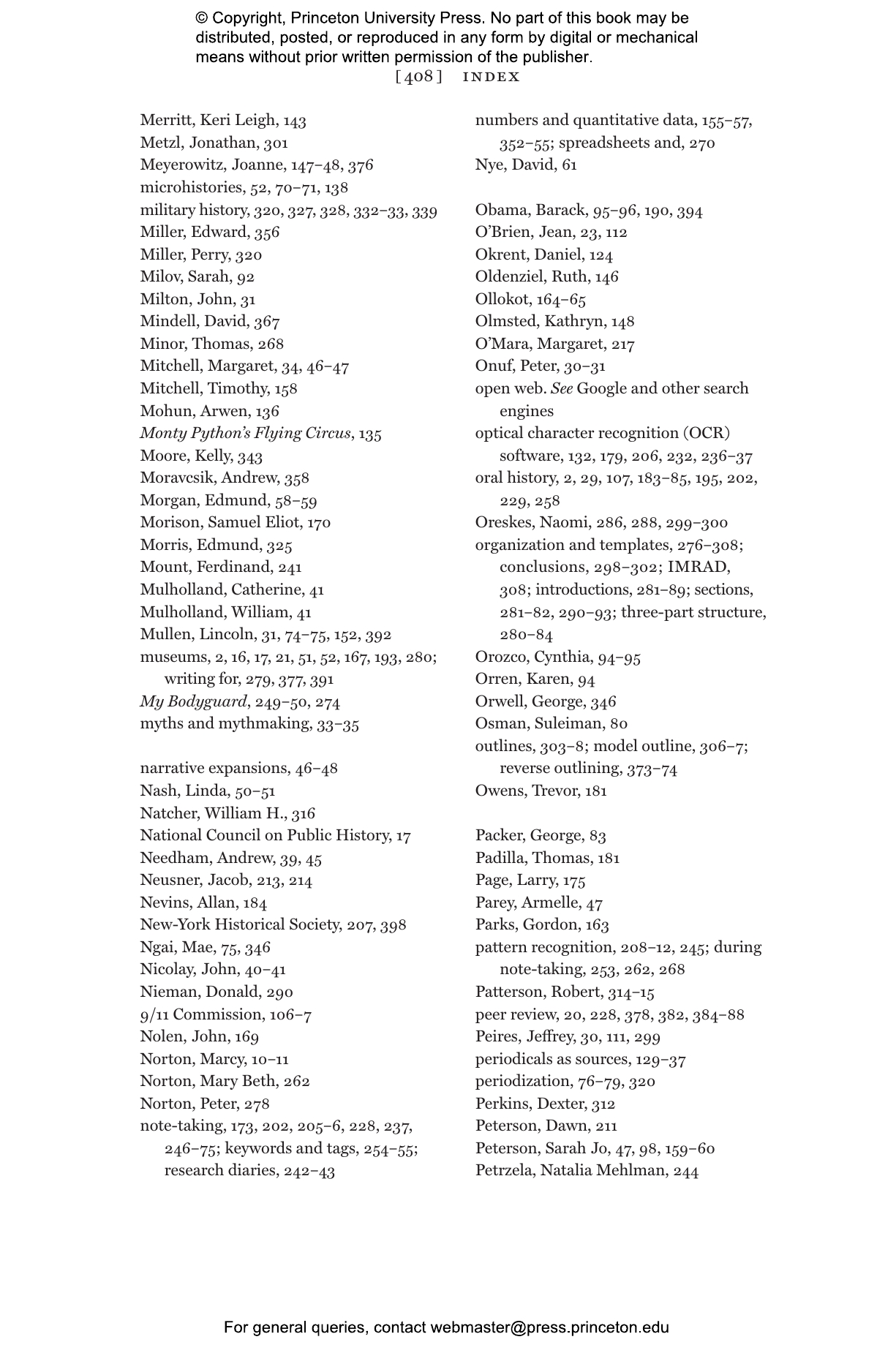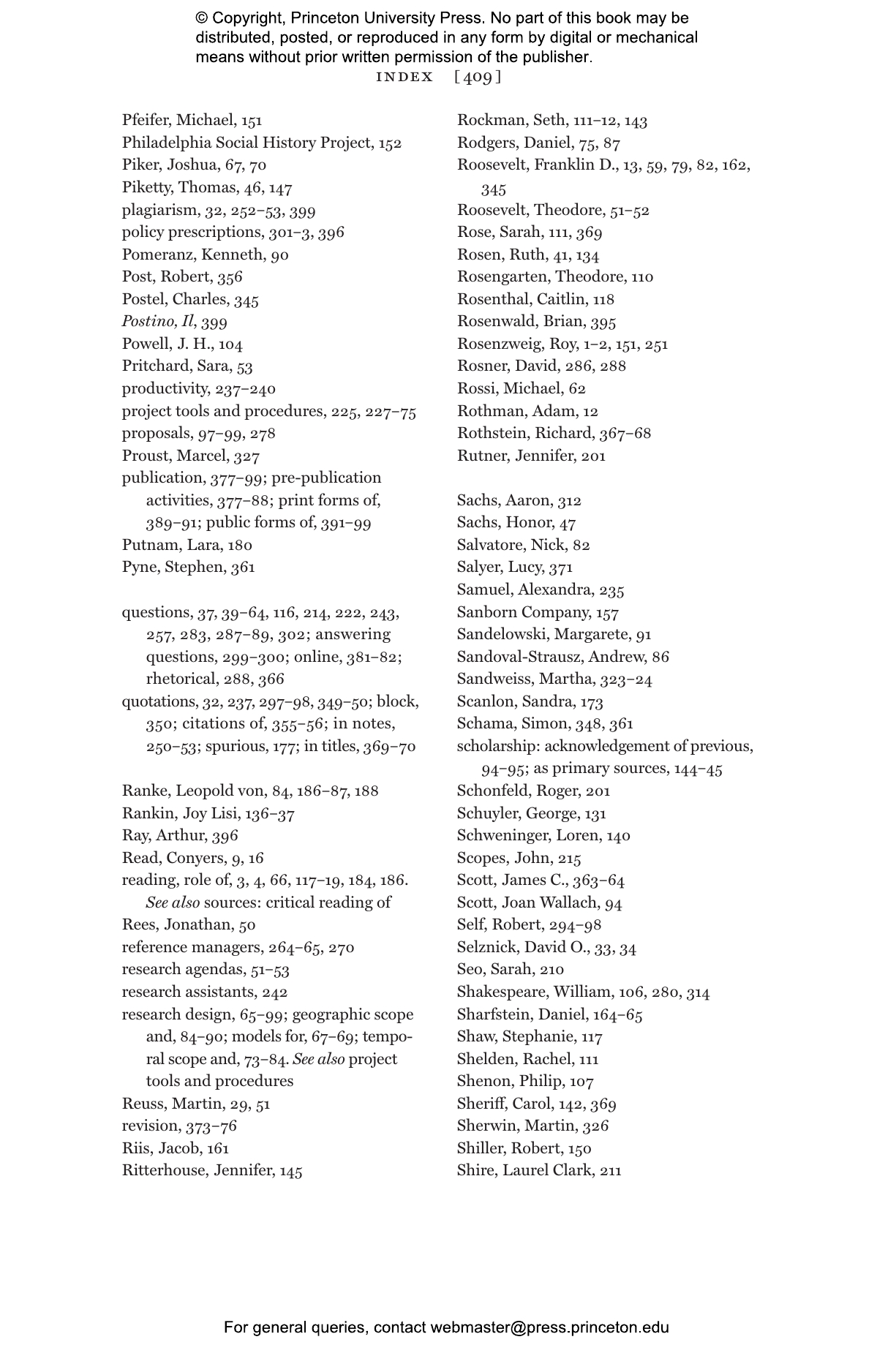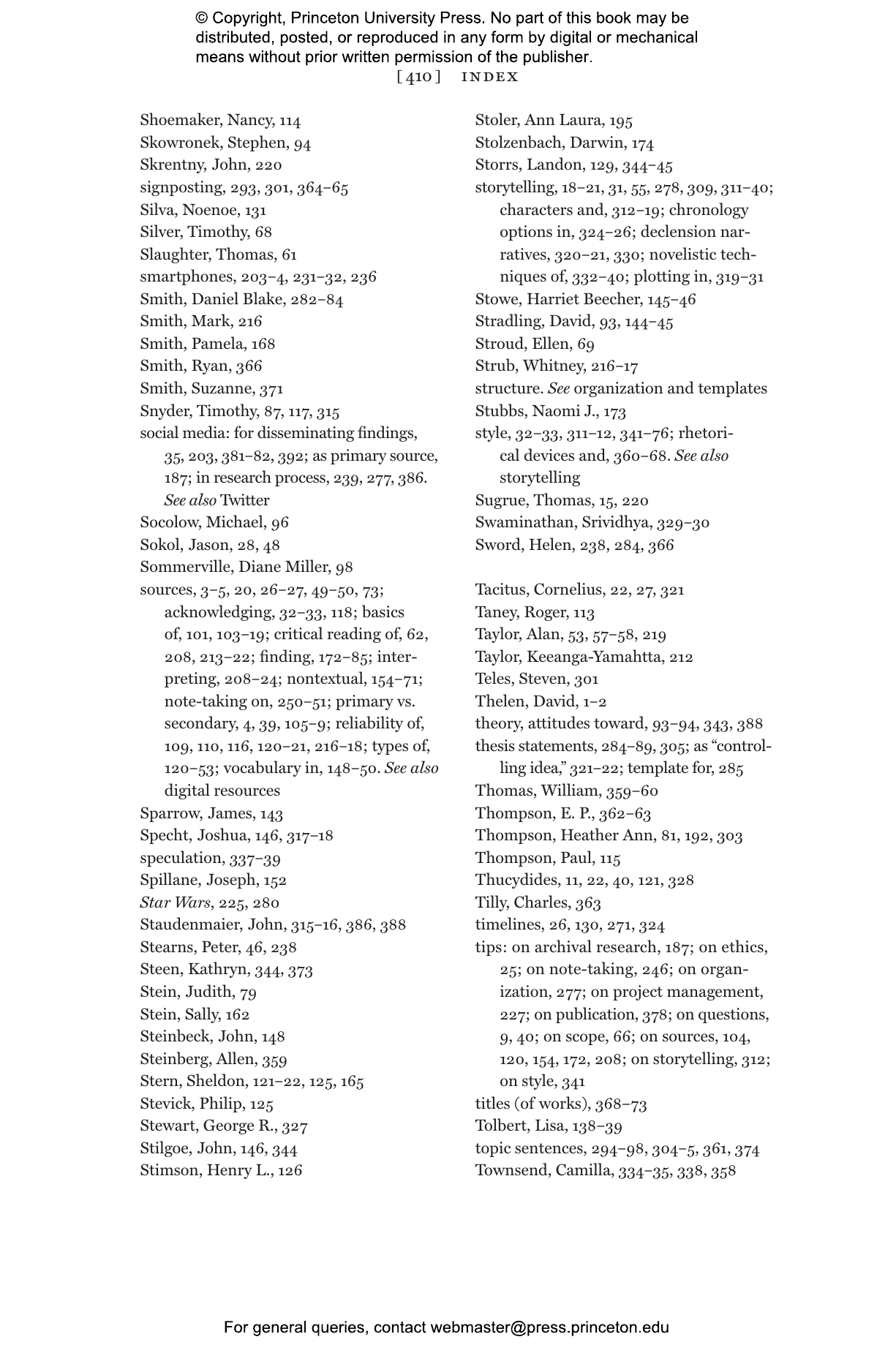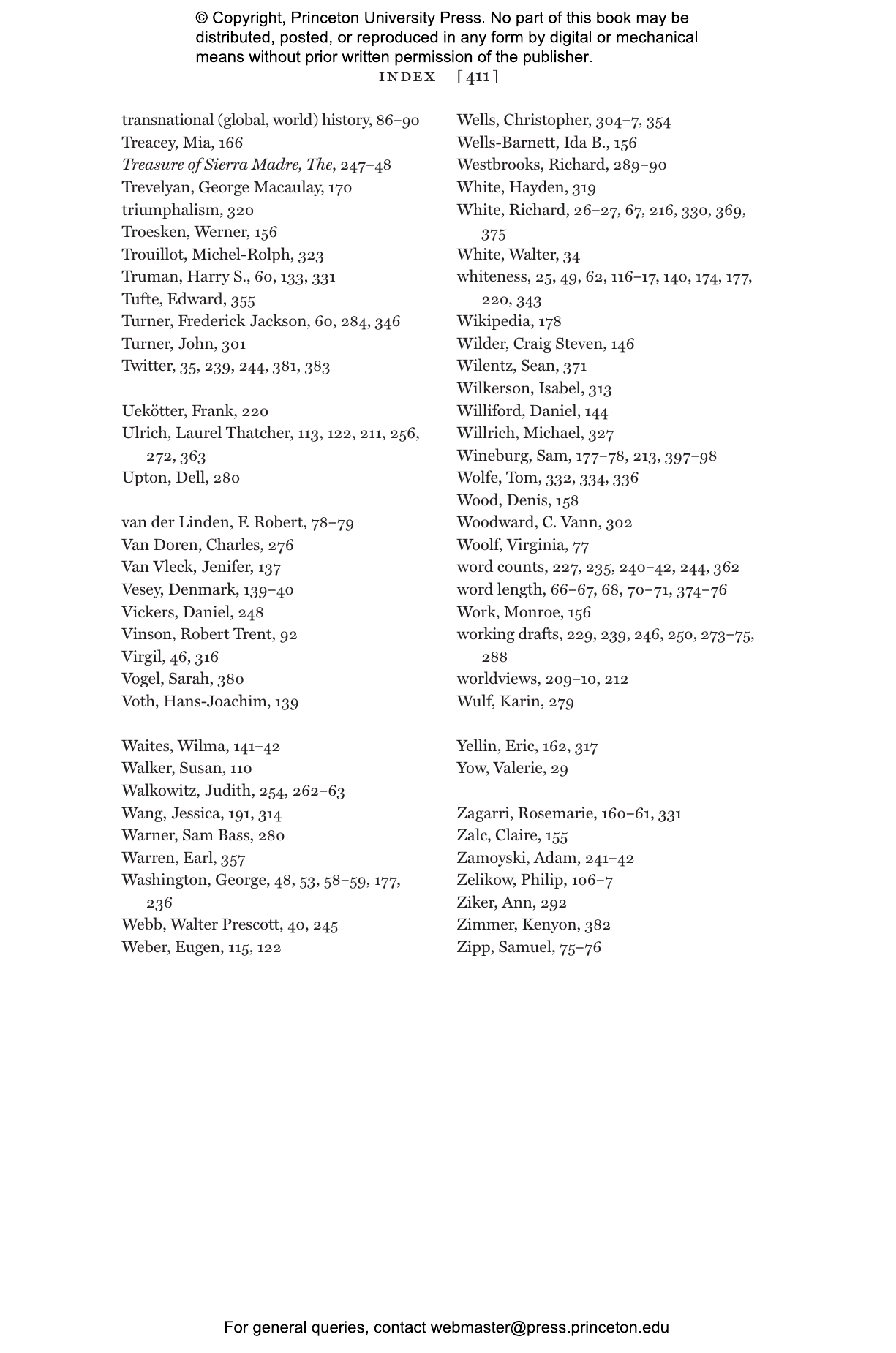The Princeton Guide to Historical Research
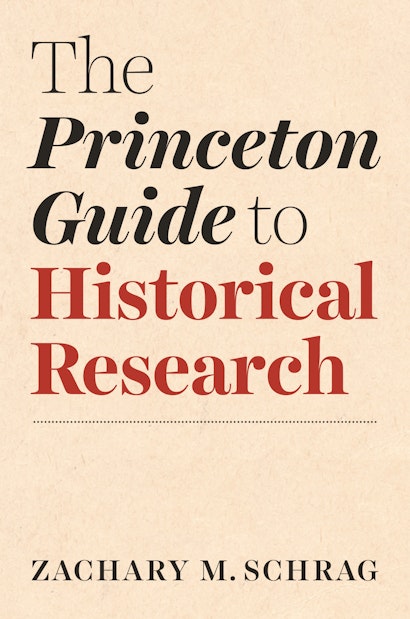

Hardcover
- Price:
- $88.00/£75.00
- ISBN:
- Published:
- Apr 27, 2021
- Copyright:
- 2021
- Pages:
- 440
- Size:
- 6.13 x 9.25 in.
- 2 b/w illus. 1 table.
- Main_subject:
- Sociology
Paperback
ebook
The Princeton Guide to Historical Research provides students, scholars, and professionals with the skills they need to practice the historian’s craft in the digital age, while never losing sight of the fundamental values and techniques that have defined historical scholarship for centuries.
Zachary Schrag begins by explaining how to ask good questions and then guides readers step-by-step through all phases of historical research, from narrowing a topic and locating sources to taking notes, crafting a narrative, and connecting one’s work to existing scholarship. He shows how researchers extract knowledge from the widest range of sources, such as government documents, newspapers, unpublished manuscripts, images, interviews, and datasets. He demonstrates how to use archives and libraries, read sources critically, present claims supported by evidence, tell compelling stories, and much more.
Featuring a wealth of examples that illustrate the methods used by seasoned experts, The Princeton Guide to Historical Research reveals that, however varied the subject matter and sources, historians share basic tools in the quest to understand people and the choices they made.
- Offers practical step-by-step guidance on how to do historical research, taking readers from initial questions to final publication
- Connects new digital technologies to the traditional skills of the historian
- Draws on hundreds of examples from a broad range of historical topics and approaches
- Shares tips for researchers at every skill level
Skills for Scholars: The new tools of the trade
Awards and Recognition
- Winner of the James Harvey Robinson Prize, American Historical Association
- A Choice Outstanding Academic Title of the Year
